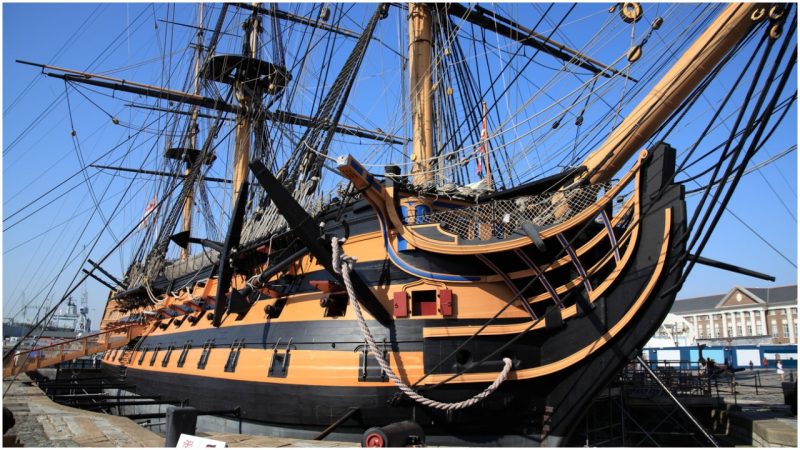Groups of ten to twelve sailors or soldiers would roam port towns and cities looking for men to press into naval service.
“Join the Navy, see the world!” was a popular phrase used by Navy recruiters and one that is often referenced in TV shows and movies – usually sarcastically.
Being at sea for months at a time, isolated and far from friends and family, subject to strict discipline, and under the constant threat of enemy fire can genuinely appeal to some men. However, most are not interested in living such a life and would prefer to remain safe and sound on terra firma.
This was especially the case in the age of sailing ships when going out to sea meant that one would be away from land for months at a time. Furthermore, sailors had to survive on poor quality rations, ran the risk of contracting scurvy or other diseases, and faced the very real prospect of dying in a bloody battle or drowning.
In that era, strong navies were greatly to be desired. Control of the seas was essential before the invention of flight. But many countries faced difficulties in getting crews large enough to man their ever-expanding fleets.
This was a most pressing problem for Britain which, in the late 18th, 19th, and early 20th centuries, had the largest and most powerful naval fleet in the world.
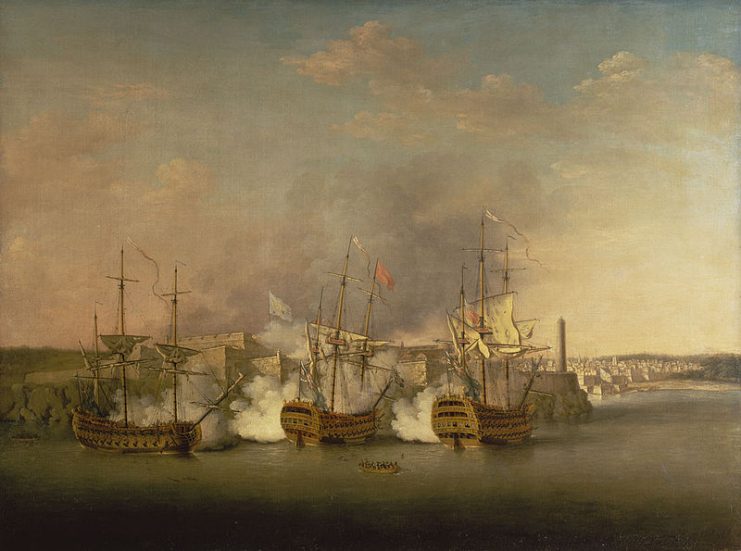
Of course, when it came to expanding the British Empire and controlling the world’s seas, the powers that be were willing to bend the rule of law somewhat in order to get much-needed men into the Royal Navy’s ships.
When the Royal Navy was short on manpower and volunteers were lacking, a number of less than ethical methods were employed to get men onto ships. That said, though, impressment (also known as “press-ganging”) of men into the Royal Navy was not as common a method of recruitment as many 20th century historians have previously suggested it was.
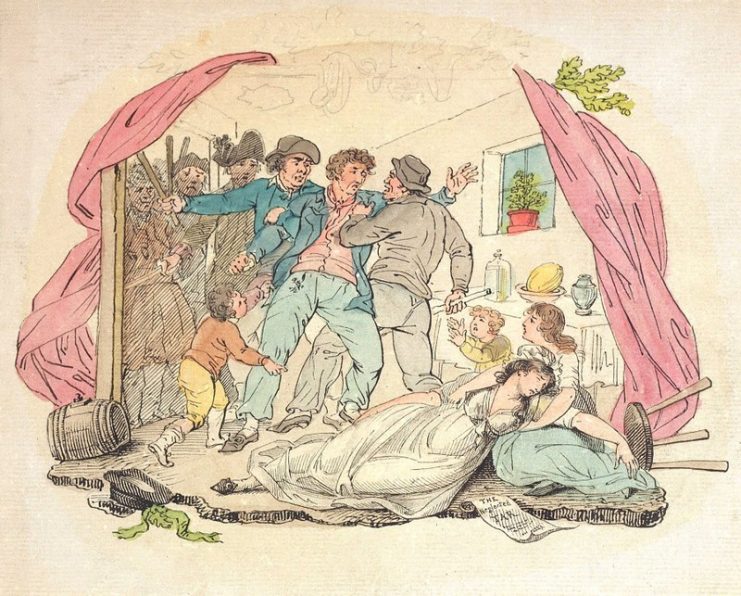
While past historians have put forward numbers which indicate that 50% – 80% of late 18th and early 19th century Royal Navy sailors were pressed into service, recent research has shown that the number of impressed men was far lower. They constituted, at most, 30% of the total number of enlisted sailors. However, this is still a significant number.
For obvious reasons, the Royal Navy preferred to staff its ships with volunteers rather than men who were forced to be there. A man who has chosen to serve rather than having been forced to do so is likely to be far more loyal and disciplined. The Royal Navy recognized this and often stated that it was preferable to have one volunteer in place of three impressed men.
Nevertheless, when there were severe shortages, desperate measures had to be taken to swell the ranks.
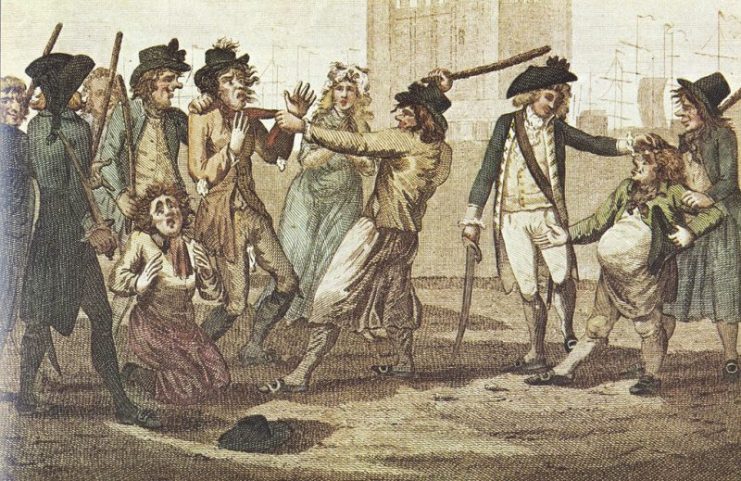
Unsurprisingly, the men who ended up being essentially forced into service in the Royal Navy frequently came from the dregs of society. Often, volunteers did not join out of any sense of patriotism or loyalty to their king and country, but rather because joining the navy was offered as an alternative to prison time for certain minor crimes.
Volunteering to serve in the Royal Navy was also a way to escape debt. If a man’s debt was less than £20, signing up to join the navy would indemnify him from being thrown into a debtor’s jail.
There was also the Quota Act, which required every county to provide a certain number of volunteers for the Royal Navy every year. These men would be rewarded financially – not very generously, but for someone who was desperately poor, it could mean the difference between having a roof over your head and facing homelessness.
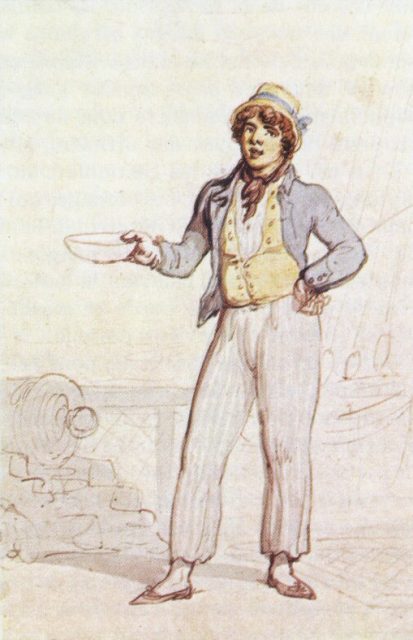
However, some counties simply sent their convicts and criminals to the Royal Navy to fill their quotas.
Despite such incentives to join the Royal Navy, filling up the ranks proved to be difficult — especially in times of war when a lot of men would need to be mobilized. This was where press-gangs came in.
They were called press-gangs because they were, quite literally, gangs. Groups of ten to twelve sailors or soldiers would roam port towns and cities looking for men to press into naval service. The age range of men who could legally be pressed into service was 18 – 55, but rules were often bent or outright broken in the quest to get men onto ships.
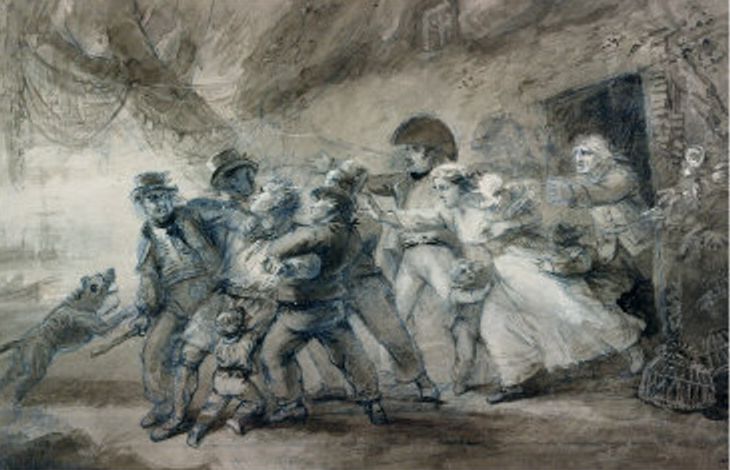
Sailors who worked on merchant vessels were especially prized as they already had experience at sea and would require less training than a “landlubber.” However, merchant captains did not want to lose experienced sailors to the Royal Navy so they would sometimes construct places on their ships in which valuable sailors could hide if a press-gang came on board at a port.
Since merchant ships were sometimes targeted at sea, some captains would go so far as dropping off their best sailors at Irish ports before entering English waters to minimize the risk of their men being seized.
While the Royal Navy was supposed to replace any sailor they recruited from a merchant ship, an expert sailor would often be traded for a raw recruit or unruly criminal which was obviously an undesirable outcome for the merchant captain.
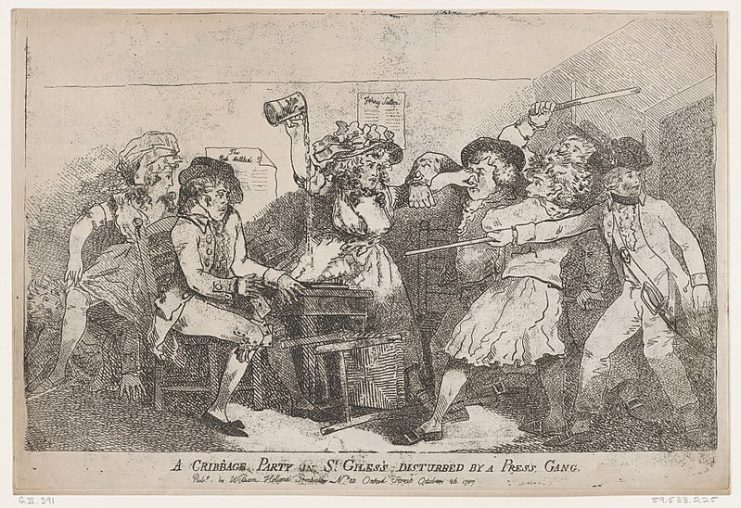
As for general civilians in port towns and cities, their employers, friends, or family members would often try to intervene – sometimes violently – when a man was seized by a press-gang.
As a result, recruiters often turned to more sneaky means rather than risk open violence on the streets. They would seek out their quarry in pubs and slip the king’s shilling into the pockets of men who were passed-out-drunk, or into mugs of beer or ale. When a man found the shilling in his pocket or at the bottom of his mug, he was deemed by the recruitment officer to have “volunteered” by “accepting” the king’s pay.
This method of deceptive recruiting led to many taverns and pubs using glass mugs or glass-bottomed mugs so that men could see that a coin had been slipped into their drink prior to them drinking it. However, this was not as common a method as is sometimes made out, and recruiters could be fined for using such a tactic.
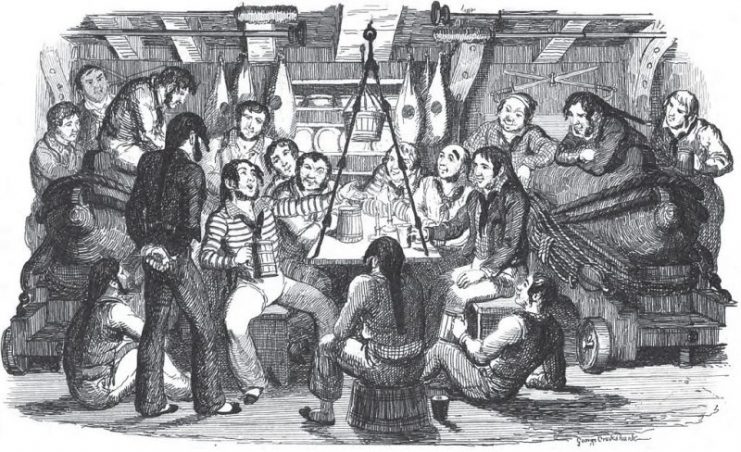
Read another story from us: Why were American Sailors Kidnapped by the Royal Navy?
Whilepress-gangingg was mostly done on English soil or in English waters, it was sometimes done in British colonies as well. It was particularly used in British North America from 1775 to 1815, and is thought to have been one of the factors that contributed to the war of 1812.
While press-ganging diminished greatly after the Napoleonic Wars and was mostly abandoned by the middle of the 19th century, it remained legal until the early 20th century.
